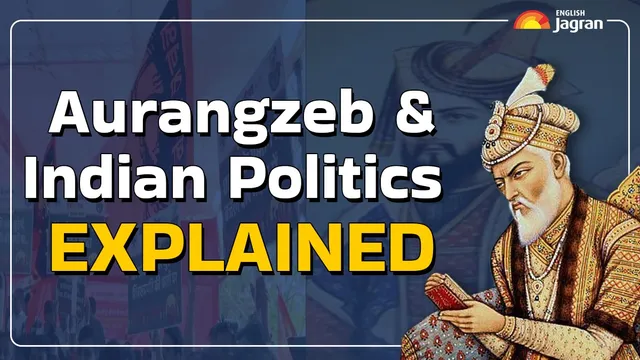- By Raju Kumar
- Tue, 18 Mar 2025 09:58 AM (IST)
- Source:JND
Nagpur violence: Nagpur - home to Rashtriya Swayamsevak Sangh (RSS) and Maharashtra Chief Minister Devendra Fadnavis witnessed incidents of violence on Monday, prompting the authorities to impose a curfew in the police station limits of Kotwali, Ganeshpeth, Lakadganj, Pachpaoali, Shantinagar, Sakkardara, Nandanvan, Imamwada, Yashodhara Nagar and Kapil Nagar.
As clashes broke out between two groups, Fadnavis and Union Minister Nitin Gadkari, who is also Nagpur MP, appealed the people to maintain peace and cooperate with the administration.
Nagpur (Maharashtra) violence | Curfew has been imposed in the Police station limits of Kotwali, Ganeshpeth, Lakadganj, Pachpaoali, Shantinagar, Sakkardara, Nandanvan, Imamwada, Yashodhara Nagar and Kapil Nagar in Nagpur city. This curfew will remain in force until further… pic.twitter.com/N3CqzKcMv1
— ANI (@ANI) March 17, 2025
Over 200 members of Hindu organisations gather in Mahal
A statement released by the authorities stated, "On March 17, around 200 to 250 members of the Vishwa Hindu Parishad (VHP) and Bajrang Dal gathered near the Shivaji Maharaj statue in Mahal, Nagpur, to support removing Aurangzeb's grave. The protesters raised slogans demanding the grave's removal and displayed a symbolic green cloth filled with cow dung cakes."
Why is politics on Aurangzeb's grave?
Politics on Mughal emperor Aurangzeb (1618-1707) is not new in India. From the Bharatiya Janata Party to other pro-Hindutva organisations like Vishwa Hindu Parishad (VHP) and Bajrang Dal keep reviving issues related to Muslim kings, aiming vote-bank politics. Over the last few years, propaganda against Muslims turned out to be a 'milking cow' that gives electoral gains. From Prime Minister Narendra Modi to Uttar Pradesh Chief Minister Yogi Adityanath to Shiv Sena (UBT) chief Uddhav Thackeray to another faction of Shiv Sena's Eknath Shinde, the list is long who are called as “Hindu Hriday Samrat”. Renaming the government institutes and cities in an attempt to alter history related to Muslim rulers is well known in the country. Since Aurangzeb carried out atrocities against Hindu rulers in an attempt to spread his empire, Hindu organisations always use his name to do the Hindu-Muslim politics.
Here are the five reasons why Hindu organisations demand removal of Aurangzeb's grave
1. The contemporary reason is Samajwadi Party MLA Abu Azmi's statement in which he allegedly admired Aurangzeb. His statement created a huge outrage in Maharashtra. From the CM to Uddhav Thackeray, almost, every top leader in the state slammed him. The entire controversy took another turn when BJP's Satara MP Udayanraje Bhosale, a descendant of Maratha king Chhatrapati Shivaji Maharaj, demanded the removal of Aurangzeb's tomb. Later, the issue snowballed to the extent that Hindutva activists gathered in Nagpur, resulting in violence in the city.
2. Another contemporary reason is the release of the Bollywood movie - Chhaava which revived the people's memories against Aurangzeb. The Vicky Kaushal-starrer film narrated Aurangzeb's brutality inflicted upon Sambhaji Maharaj, the second ruler of the Maratha Empire and son of Shivaji Maharaj.
3. Now, right-wingers asserted that Aurangzeb's grave is a symbol of 'slavery' and it must be removed to honour those who fought against the Mughal king's brutalities.
4. Historically, Aurangzeb was the most ruthless Mughal king, who ruled India with an iron fist and carried out cruel initiatives against Hindus and Sikhs.
5. Aurangzeb ordered the execution of the ninth Sikh Guru Tegh Bahadur because he objected to the Mughal ruler's forced conversions. Sahibzada Jorawar Singh and Sahibzada Fateh Singh - sons of the tenth Sikh Guru, Guru Gobind Singh were brutally killed. They refused to convert to Islam. Angry Aurangzeb ordered brick alive.

